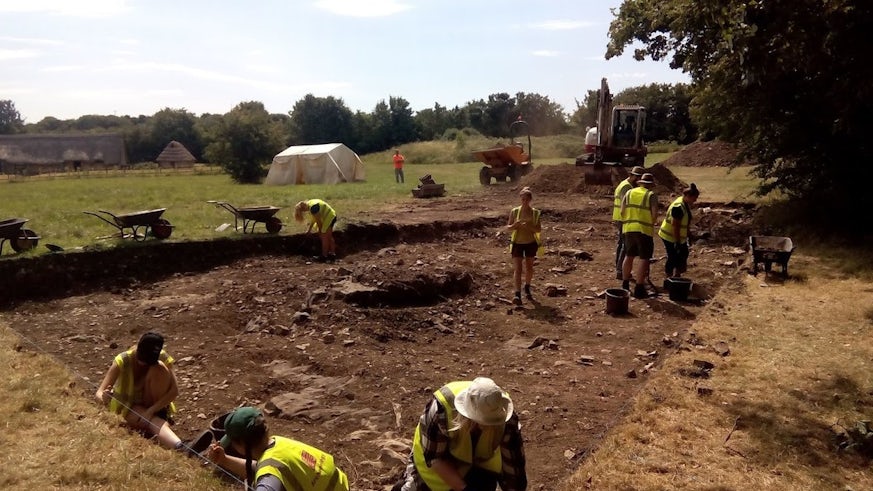Experiencing the past first-hand: Students head across the UK and overseas on placements
13 July 2018

More than 100 students of Archaeology and Conservation at the University are now on placement in the hands-down favourite element of the degrees.
Four-week placements take place each summer following Year One and Year Two, giving a wealth of practical hands-on experience
Both BA and BSc students benefit from the School’s long-held partnerships with stakeholders and practitioners across Wales and the UK, on excavations in the UK and overseas, or working in heritage management, community and experimental archaeology.
This summer Archaeology students have been able to choose their assessed four weeks experience from more than twenty options, with most electing for excavations. The majority have opted for overseas excavation placements in Crete, Germany, Italy, Portugal, Serbia and Spain, with the largest numbers taking part in excavation at the Hillforts of Lippe in western Germany and Idjos in Serbia. Thirty are headed to sites in the UK. These include placements with Archaeology Wales, the Museum of London Archaeology (MOLA) and our University-run excavation of the medieval site of Cosmeston in nearby Vale of Glamorgan.
Alternative opportunities include hands-on experience of community archaeology, such as cutting-edge experiences of Community Archaeology with Guerrilla Archaeology, the Cardiff-based collective dedicated to getting the public to engage with the past.
As an undergraduate, Katie Faillace, chose firstly to excavate at the Iron Age site Caerau hillfort, in Cardiff, followed by a placement at a large commercial unit within the Museum of London Archaeology during her BSc Archaeology.
‘Summer archaeology placements through Cardiff University are invaluable - I was lucky to go into the field and into a major commercial unit, giving me broad skills for future employment in archaeology, numerous industry connections, and fantastic friendships’ said Katie, who is now pursuing her PhD.
Conservation students begin the process of developing professional networks by taking placements in museums, historic houses and excavations across the world. Students use their placements to take their learned practice into real working environments, gaining additional skills ranging from developing detailed technical skills, working with the public to supporting social media for their host museums.
In her second year of BSc Conservation of Museum Objects and Archaeology, Emily Franks is on placement at the Australian Museum in Sydney. ‘A placement brings together everything you've learnt throughout the year and helps you develop more confidence in yourself, knowledge and ability’ she says.
‘Every employer wants experience, and a placement gives you experience and understanding of the industry and gives you a head start when job hunting.’
‘Placements are regarded as an integral element of the Archaeology and Conservation degrees at Cardiff, something underlined by our commitment to secure, source and fund this enriching component of the programme’ explains Dr Jacqui Mulville, Head of Archaeology and Conservation.
Archaeology at Cardiff is offered both as Single Honours BA and BSC, and in combination with Ancient History and Medieval History, both fulltime and part-time. Joint Honours with a wide range of Humanities subjects are also available, with the majority including the option of a Year of Study Abroad at a wide variety of international destinations.
The three-year degree Conservation of Objects in Museums and Archaeology (BSc) is available as Single Honours including options for a Year of Study Abroad.
